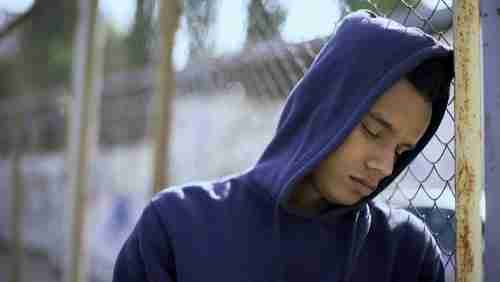When you are facing a criminal charge, you need a strong criminal defense. It doesn’t matter whether you are an adult or a juvenile. Criminal charges on a juvenile can have a huge impact on their future. The repercussions can be damaging because their ability to get into higher learning institutions, get a nice job, and live a fulfilling life can be put in jeopardy.
As a parent, one of the most important things you can do when your child is charged with a crime is find a good Decatur juvenile criminal defense attorney. At SHElaw firm®, we understand that juvenile law is often a complicated matter that must be taken with utmost seriousness. This is why you shouldn’t waste time hiring a good attorney. Our juvenile criminal defense lawyer can offer your child dedicated legal services to help secure their future.
Contact a Decatur criminal defense attorney from SHElaw firm® today by dialing 470-788-8930 or filling out our online contact form.
My Child Was Arrested in Georgia, What Is the Process of Getting Them Out of Jail?
Usually, when a child is arrested and taken into custody in Georgia, the law requires the law enforcement officer to release the child to their parent(s), get the child to a hospital(if the child needs immediate medical attention), or get in touch with a juvenile intake officer. If the law enforcement officer summons a juvenile intake officer, that intake officer will determine whether the child will be jailed or released to his or her parents using a Detention Assessment as a point of reference.
In Georgia, when a child is jailed, the juvenile court must convene a detention hearing within 5 days if the child was arrested with an arrest warrant or within 2 days if there was no arrest warrant.
What Are Your Rights as a Juvenile Criminal Defendant in Georgia?
Like adults, children have rights during arrests and when in custody. In Georgia children enjoy the following rights during arrests:
Right to Request the Presence of an Attorney or Parent
Before or during the interrogation, a child has the right to request for a lawyer or parent to be present. The law requires the police to comply when the child requests an attorney’s or parent’s presence mid-questioning. The attorney or parent can also decide whether the child should respond to the questions once they arrive.
The Fifth Amendment
The U.S. Constitution protects both adults and children from admitting to a crime against their will through forceful coercion. But, if there was any informal conversation between the child and the police before being put under arrest, it may be used against the child in juvenile court. Any information acquired involuntarily will be deemed irrelevant in a law court.
Miranda Rights
Children taken into custody have the right to be informed of their Miranda rights before making any statements to the police.
As you may already be aware, the Miranda rights states that the child has the right to remain silent, anything they say can and will be used against them in a court of law, they have the right to a lawyer, and if they can’t afford a lawyer, one will be provided for them.
Police reports cannot be considered in a law court if the officer informed the child of these rights. This means the child has the right to remain silent and speak to a lawyer before submitting any information to the police. Any information the child dispenses without being advised of these rights cannot be used to incriminate him or her.
Repercussions
If the police arrest a child and deny them their right to call or speak to their parent or an attorney, the parents may file a complaint for the violation.
Should My Child Consult a Lawyer Before Talking to Police?
If Georgia police approach a child to get information about their involvement in a crime, the child has the right to decide on answering them or not. Anything the child says could be used against them in juvenile court so it’s best for the child to talk to an attorney before giving out any information to the police.
How Will an Arrest Affect their Future?
Although charging a child for a criminal offense can greatly influence the course of their future, Georgia laws protect juvenile offenders. They protect them from being labeled as criminals–something that can prevent them from getting into academic institutions, having a career, or ultimately having a fulfilling life.
In Georgia, the law dictates that all juvenile records are to remain confidential unless a court orders otherwise. However, repeat juvenile offenders and those who have committed serious offenses are not afforded the same level of protection and confidentiality. The same goes for juveniles that are tried in an adult court.
What Are the Types of Punishment that My Child Could Be Facing?
When a juvenile court adjudged a juvenile as delinquent, the child could face incarceration as punishment. But the confinement methods used are different from those used on adult offenders. A judge could order the following punishments for your child:
- House arrest, where a judge will order the minor to stay at home except if they are going to work, school, counseling, etc.
- Serving time in a juvenile detention facility for a short-term stay.
- Placement under the care of a parent or guardian in a foster home.
- Probation after serving time in a juvenile facility.
- Serving time in a secured juvenile facility for longer stays
- Serving time in an adult correctional center like a state prison or a county jail albeit in rare cases.
- A blended sentence. This involves serving time in a juvenile facility and then later an adult jail once they are of age.
Why Should I Hire SHElaw firm® to Represent My Child?
At SHElaw firm®, we are knowledgeable and experienced in juvenile defense. You can trust us to advocate on behalf of your child. Our skilled attorneys will assess the facts of your child’s case to determine whether there were any violations during the arrest.
We also offer effective advocacy when the case reaches the disposition hearing stage. Our lawyers will fight to the end to build a strong case that will convince the judge to make a favorable ruling and hopefully soften the legal and financial penalties.
On top of that, our respected attorneys can negotiate for diversion programs to help resolve your child’s case before a formal petition is filed and the case is slated for trial. But, diversion programs often only apply to misdemeanors and less serious felony crimes.
All is not lost when your child is charged with a criminal offense. But it is important to take swift action by hiring a Decatur juvenile criminal defense attorney from SHElaw firm®.
Contact a Decatur Juvenile Criminal Defense Attorney Today!
Navigating the Georgia juvenile Code without an attorney can be challenging and overwhelming. You can rely on our Decatur juvenile criminal defense lawyers to assist with your child’s case. Contact SHElaw firm® today by calling 470-788-8930 or filling out our online form.







